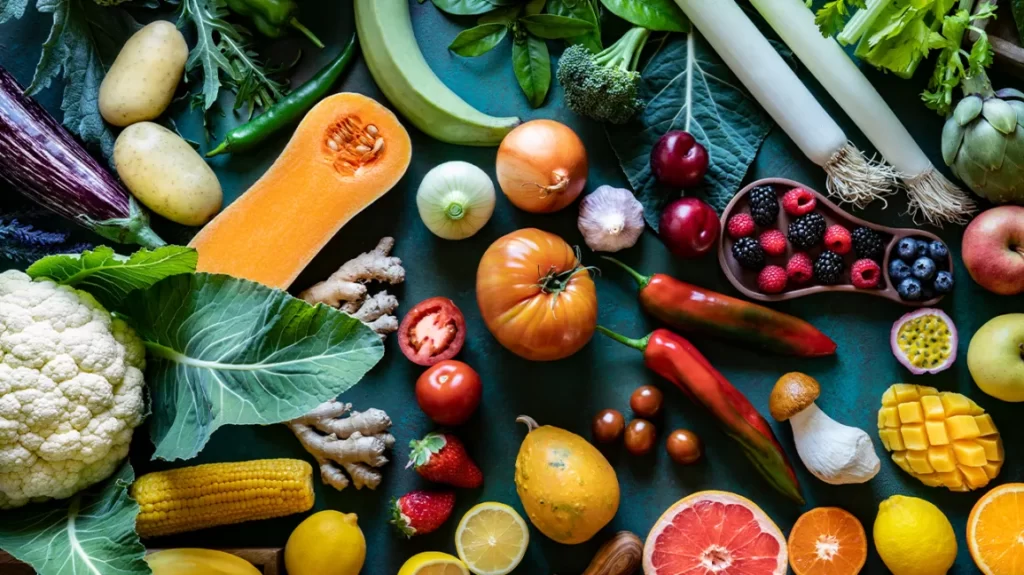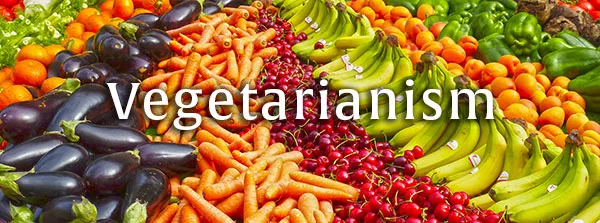Exploring the World of Vegetarianism: A Lifestyle of Compassion and Sustainability

In a world where dietary choices are as diverse as the cultures themselves, vegetarianism stands out as a lifestyle embraced by millions of people across the globe. Whether motivated by ethical, environmental, or health concerns, vegetarianism has gained significant traction over the years. In this blog, we will delve into the world of vegetarianism, shedding light on its various aspects, benefits, and the impact it has on individuals and the planet.
What is Vegetarianism?
Vegetarianism is a dietary and lifestyle choice characterized by the abstention from consuming meat, poultry, and, in some cases, fish. Vegetarians primarily rely on plant-based foods such as fruits, vegetables, grains, legumes, nuts, seeds, and dairy products (in the case of lacto-vegetarians). This choice can vary in strictness, leading to various subcategories within the vegetarian diet.
Types of Vegetarianism
Lacto-Vegetarian: Lacto-vegetarians exclude meat, poultry, fish, and eggs from their diet but include dairy products.
Ovo-Vegetarian: Ovo-vegetarians avoid meat, poultry, fish, and dairy products but consume eggs.
Vegan: Vegans adhere to the strictest form of vegetarianism, excluding all animal products, including dairy, eggs, and even honey.
Pescatarian: Pescatarians abstain from meat and poultry but include fish and seafood in their diet.
Flexitarian: Flexitarians occasionally consume meat, poultry, or fish but primarily follow a vegetarian diet.
“If slaughterhouses had glass walls, everyone would be a vegetarian.”
–Paul McCartney.
Benefits of Vegetarianism
Health Benefits:
Reduced risk of chronic diseases: Studies have shown that vegetarians tend to have lower rates of heart disease, hypertension, type 2 diabetes, and certain cancers.
Weight management: Vegetarian diets are often associated with healthy weight management due to lower calorie intake and increased fiber consumption.
Improved digestion: A diet rich in plant-based foods can promote healthy digestion and reduce the risk of gastrointestinal issues.
Environmental Impact:
Lower carbon footprint: Producing plant-based foods generally requires fewer resources and produces fewer greenhouse gas emissions compared to raising livestock.
Preservation of ecosystems: Reducing meat consumption can help protect forests, wetlands, and other natural habitats threatened by agriculture expansion.
Ethical Considerations:
Animal welfare: Vegetarians often choose their lifestyle to avoid contributing to the suffering of animals in the food industry.
Compassion for all living beings: Many vegetarians believe in the intrinsic value of all life and choose not to harm animals for food.

Challenges of Vegetarianism
While vegetarianism offers numerous benefits, it may also present some challenges:
Nutrient balance: Vegetarians need to pay attention to obtaining essential nutrients like vitamin B12, iron, calcium, and omega-3 fatty acids from plant-based sources or supplements.
Social situations: Dining out or attending gatherings with non-vegetarian friends and family can sometimes be challenging for vegetarians.
Initial adjustment: Some individuals may find it challenging to adapt to a vegetarian diet initially, especially if they are used to consuming meat regularly.
“Nothing will benefit human health and increase the chances for survival of life on Earth as much as the evolution to a vegetarian diet.”
Albert Einstein
Conclusion
Vegetarianism is a lifestyle choice that goes beyond dietary preferences; it reflects a commitment to health, compassion, and environmental sustainability. Whether motivated by ethical, health, or environmental concerns, vegetarians contribute to a more sustainable and compassionate world. As the world becomes increasingly aware of the impact of our food choices, the popularity of vegetarianism continues to grow, making it an essential part of the global effort to create a healthier and more sustainable future for all.







2 thoughts on “Exploring the World of Vegetarianism: A Lifestyle of Compassion and Sustainability”